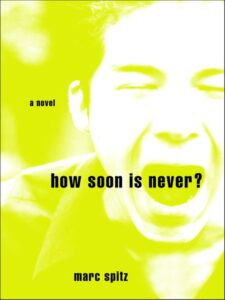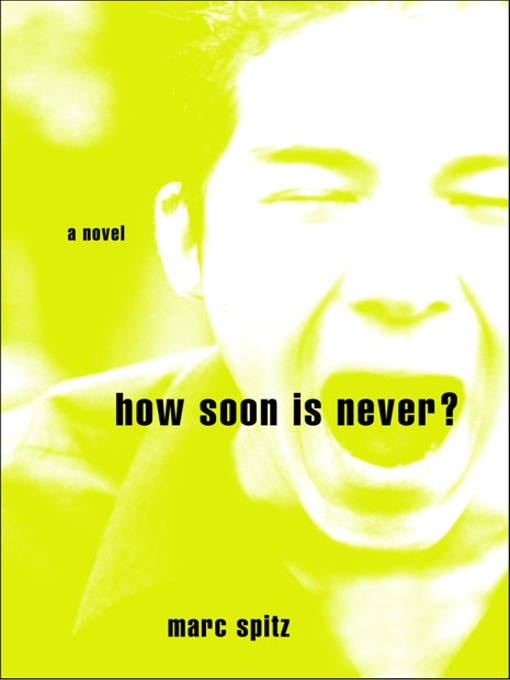
Author: Marc Spitz
Publication Year: 2003
Length: 400 pages
Is that Gilbert Gottfried on the cover? An odd choice, to be sure, but somehow appropriate given the first act of this book, which is filled with angst, anger and teenage alienation. I certainly took to the subject matter of this book right off the bat–the life and times of Marc Spitz and his on and off love affair with The Smiths. I’m just a couple years younger than Spitz, who chronicles his parents’ divorce, his descent into juvenile delinquency and his eventual deliverance at the hands of Morrissey and his gang. Along the way he and his group of high school friends in Long Island are tortured by jocks and JAPs, and are relegated to the art room for lunch. Their world revolves around the rock radio station and the chance to hear a snippet of “Hand In Glove” over the airwaves. It sounds similar to my high school experience–well, without the jock harassment, art room and group of reject friends. I went to a nerdy all-guys school where even the jocks got 1450s on their SATs and my friends skated and smoked weed whenever it was available. That aside, I did listen to The Smiths in junior high, and had the strange feeling that they were talking to me. Spitz does a wonderful job of describing the blinding horniness and confusion that comes with adolescence and young teen years. He sums up the need to find “a look” and an attitude for young males. He actually had a reason to play the wounded, angry guy. I tried it, but just ended up looking like a jackass. We see Spitz’s evolution from wounded teen to drug addled college student (who isn’t at Bennington, anyway?) to East Village junkie. After a bunch of stuff he ends up as a rock journalist (of course) and, after years of thinking The Smiths abandoned him in his youth, he decides with a co-worker to try to reunite the later day fab four. Anyway, the book is filled with a bunch of displaced idol worship and unrequited love. I loved the first part of the book. Watching our protagonist evolving from child of divorce to fake punk to raging Anglophile. The second act, which is devoid of Smiths, as he has blamed them for the downfall of his life, is a little less inspired, and wanders a bit like his life does. The third act–the denouement, some might say–kind of degenerates into the haze of his obsession to both reunite The Smiths and pursue his partner in crime. It drags a bit (how many times can the guy go to that shitbox, The Library?) and gets repetitive at times. There’s what I imagine to be a pretty narrow audience for this book, but I am certainly right in that target. I wouldn’t call it a great piece of literature, but it is certainly worth a read if you’re in the mood to be kinda depressed.


